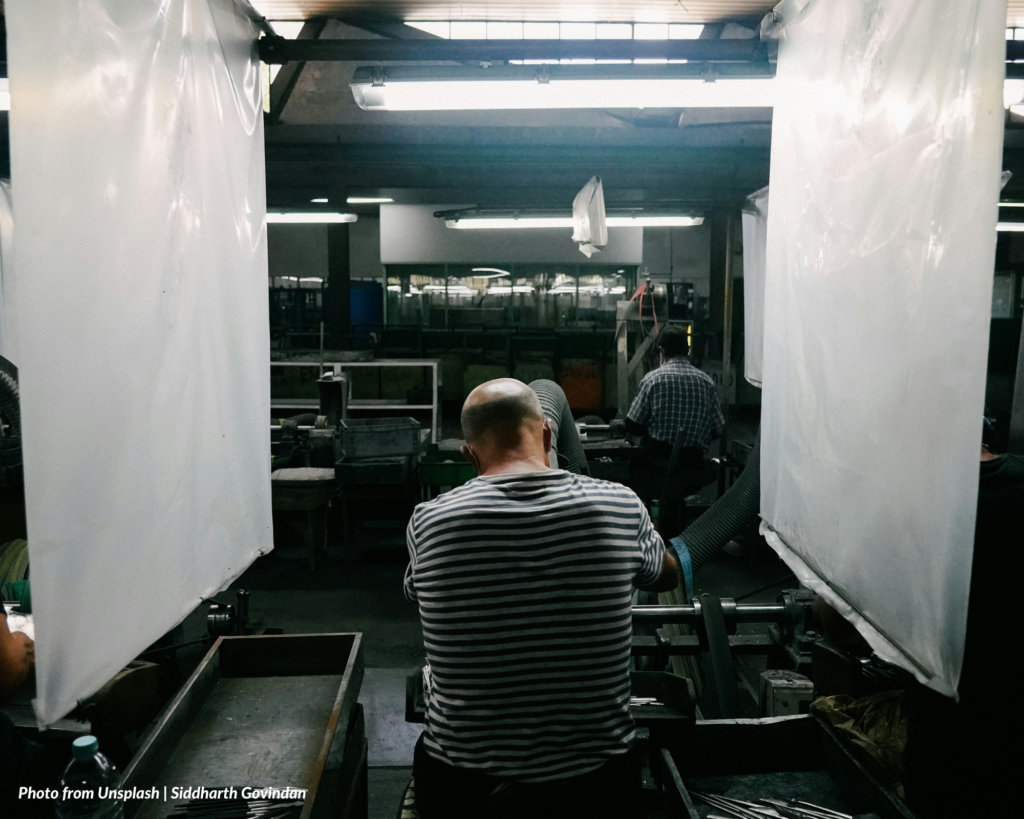
Photo from Unsplash | Siddharth Govindan
The following post does not create a lawyer-client relationship between Alburo Alburo and Associates Law Offices (or any of its lawyers) and the reader. It is still best for you to engage the services of a lawyer or you may directly contact and consult Alburo Alburo and Associates Law Offices to address your specific legal concerns, if there is any.
Also, the matters contained in the following were written in accordance with the law, rules, and jurisprudence prevailing at the time of writing and posting, and do not include any future developments on the subject matter under discussion.
AT A GLANCE:
The age-old rule governing the relation between labor and capital, or management and employee of a “fair day’s wage for a fair day’s labor” remains as the basic factor in determining employees’ wages.
If there is no work performed by the employee, there can be no wage or pay, unless of course, the laborer was able, willing, and ready to work but was illegally locked out, suspended or dismissed, or otherwise illegally prevented from working.
(Aklan Electric Cooperative, Inc. v. NLRC, G.R. No. 121439, January 25, 2000)
Under the Labor Code of the Philippines:
“Wage” paid to any employee shall mean the remuneration or earnings, however designated, capable of being expressed in terms of money, whether fixed or ascertained on a time, task, piece, or commission basis, or other method of calculating the same, which is payable by an employer to an employee under a written or unwritten contract of employment for work done or to be done, or for services rendered or to be rendered and includes the fair and reasonable value, as determined by the Secretary of Labor and Employment, of board, lodging, or other facilities customarily furnished by the employer to the employee. “Fair and reasonable value” shall not include any profit to the employer, or to any person affiliated with the employer. (Article 97, par. f, Title II, Book III, Labor Code)
The principle of a “no work, no pay” relies on the age-old rule of a “fair day’s work for a fair-day’s work” which provides that:
The age-old rule governing the relation between labor and capital, or management and employee of a “fair day’s wage for a fair day’s labor” remains as the basic factor in determining employees’ wages.
If there is no work performed by the employee there can be no wage or pay unless, of course, the laborer was able, willing and ready to work but was illegally locked out, suspended or dismissed, or otherwise illegally prevented from working.
Given the foregoing, the “no work, no pay” principle contemplates a “no work” situation where the employees voluntarily absent themselves. To allow an employee to receive pay for a period of time that the employee could not and did not work would be unjust and violative of the principle of justice, fairness and equality.
Question: If an employee is suspended, will the principle of a “fair day’s wage for a fair day’s labor” apply?
Answer: Yes. Suspension, also called lay off, is among the step taken in employee discipline, as punishment for some major offenses. Suspension may be for a certain period ranging from one to several days. During the suspension period, the principle of “no work, no pay” applies, and thus the employee concerned does not receive his wage for each and every day he is suspended.
However, suspension affects not only the employee, but also the employer, as the employer will not be able to avail the services of the suspended employee for the lay off period. This may somehow hurt the operations of the employer, especially if the suspended employee is skilled in his job, or holds sensitive functions that others cannot effectively handle. (Frequently Asked Questions on Employee Suspension and Termination of Employment)
Related Article/s:
The Concept of No Work, No Pay
Alburo Alburo and Associates Law Offices specializes in business law and labor law consulting. For inquiries regarding taxation and taxpayer’s remedies, you may reach us at info@alburolaw.com, or dial us at (02)7745-4391/0917-5772207.
All rights reserved.


